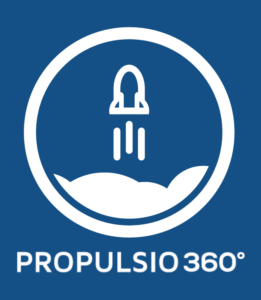Business Dispute Mediation
CIVIL AND COMMERCIAL MEDIATION
Civil and commercial mediation is a recognized dispute resolution process in which the parties agree to ask a mediator to help them find a solution to their dispute. Unlike arbitration, mediation makes it possible to maintain control over the conduct of the session in a private and confidential setting.
The mediator guides the parties through the negotiation process to resolve the dispute without imposing his or her decision, which leaves the parties full flexibility to reach a satisfactory solution for each of them.
You can contact our firm’s mediator lawyer for more information on the process and costs of mediation at info@propulsio360.com.
THE ADVANTAGES OF MEDIATION
SPEED : Mediation is a quick tool for resolving a dispute since it avoids a long judicial process governed by court delays. The parties impose their own rhythm to the meetings and to the deadline of the mediation.
ECONOMIC : Mediation is in most cases less expensive than recourse to the courts since it avoids judicial and extra-judicial costs such as the drafting of procedures, representations to the Court, preparation and hearing of the case before the judge on the merits.
CONFIDENTIALITY : In the business world, confidentiality is essential to maintain the reputation of your company acquired over the years, which is what mediation allows. Indeed, since the process is entirely confidential, the public will not have any access to the facts surrounding their dispute, to the course of the sessions or to the outcome of the mediation.
OPPORTUNITY FOR THE PARTIES TO COME TOGETHER : Because mediation takes place in a positive framework that allows the parties to reach consensus, each party can express itself freely and expose its interests and situation, with the aim of obtaining a fair result for each of them.
CERTAINTY OF OUTCOME : Even with the best preparation, a trial always involves a certain risk. There are several parameters that can affect the outcome of a trial. The rules of evidence, the quality of testimony, new elements are all factors that can cause a turnaround. Moreover, since infallibility does not exist, errors of judgment are possible, hence our Courts of Appeal. Thus mediation and settlement allow you to grasp and manage these different risks by removing you from the hazards of a trial by a known conclusion.
THE MEDIATION PROCESS
MEDIATION AGREEMENT
A Mediation Agreement contains a summary of the subject matter of the mediation, a confidentiality clause binding on you, and the hourly rate for our mediation sessions, which shall be paid in equal shares by the parties. Since the ultimate objective of mediation is to resolve the conflict and thus ensure compliance with the agreements, each of the parties must agree that it is a transaction within the meaning of the Civil Code of Québec.
THE CONDUCT OF THE MEDIATION
Our first meeting allows us to identify your expectations in terms of sessions, joint sessions and caucuses, which schedule is governed by the acceptance of each party. In caucuses, the parties take turns, alone with the mediator, to discuss the conflict, present their perception and consider proposals submitted by the other party, as well as to explore different hypotheses for resolving the conflict with the mediator.
Joint sessions allow the parties, in the presence of the mediator, to present their version of the facts to the other party and to explore together the various solutions that could put an end to the conflict.

